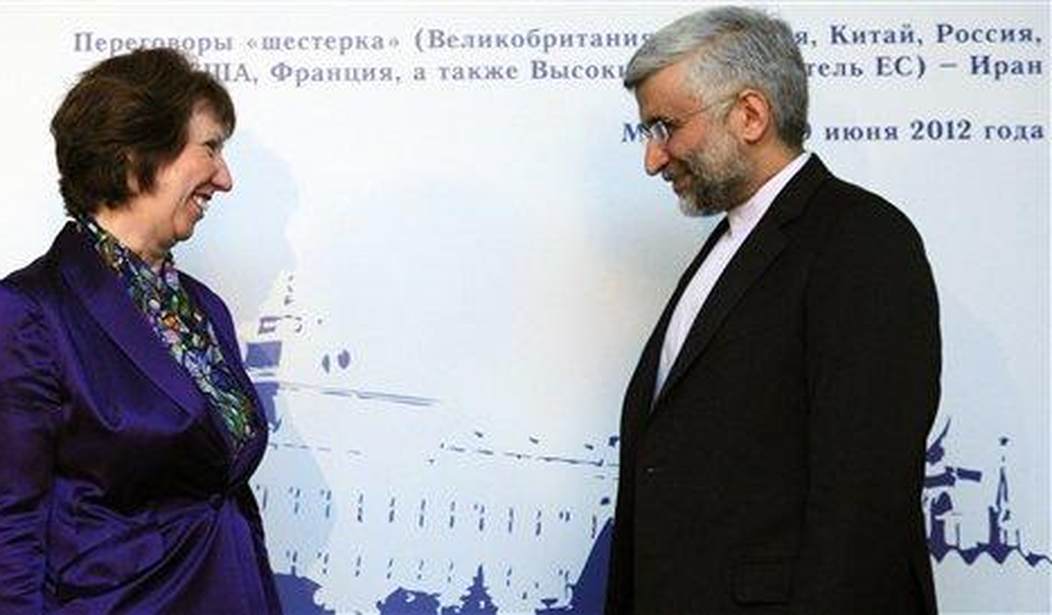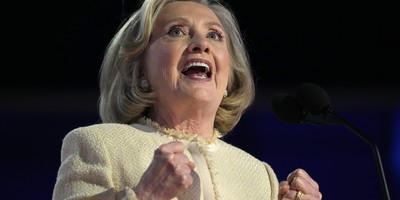The people of Iran will have to wait for the conclusion of a two-person runoff before they know who will assume the country’s second-highest office, following the May 19 death of President Ebrahim Raisi. But the people of Iran made it clear with the first-round election that they do not care about the outcome. According to poll watchers of the country’s leading pro-democracy opposition group, the People’s Mojahedin Organization of Iran, only about 12 percent of the population took part in that election, while the rest embraced a boycott campaign that was meant to convey rejection of the entire ruling system.
The sentiment behind that boycott was summarized in its immediate aftermath by the Resistance leader Maryam Rajavi, the President-elect of the National Council of Resistance of Iran(NCRI). Speaking to hundreds of politicians from dozens of countries during the Free Iran World Summit 2024 at the NCRI’s Paris headquarters, Rajavi explained that it is almost certain that the runoff will be engineered to guarantee victory for the candidate favored by Supreme Leader Ali Khamenei.
That ultra-hardliner, Saeed Jalili, is a member of the paramilitary Islamic Revolutionary Guard Corps and once served as Iran’s lead nuclear negotiator, before becoming part of the Supreme National Security Council. His campaign emphasized a belligerent approach to dealings with Western democracies, as well as a predictable repressive approach toward social issues such as women’s compulsory veiling and its often brutal enforcement, which sparked a nationwide uprising in September 2022 after morality police killed a young Kurdish woman, Mahsa Amini.
Jalili’s background and campaign leave no doubt that as president, he would oversee a further acceleration of the repressive tactics that saw unprecedented levels of violence against women and an eight-year high for the country’s already world-leading rate of executions during Raisi’s last year in office. But as Mrs. Rajavi went on to say in her speech, even in the unlikely event that Jalili is allowed to lose the runoff, it won’t much matter because “there is little difference between Jalili and the other candidate, who has explicitly stated that his red line is deviating from Khamenei’s dictates and desires.”
Recommended
This is typical of all candidates for high office in the Islamic Republic, since they are explicitly vetted for loyalty to the supreme leader and the theocratic system before being permitted to appear on the ballot. This fact, more than the particular identities of any set of candidates, is why the Iranian people have repeatedly rejected the electoral process as a sham. Even according to the regime’s official statistics, well under half of all eligible voters participated in the 2022 election that installed Raisi as president.
Of course, the latest statistics shatter these previous records for low turnout, and thus provide the strongest vindication so far for predictions that Iran is poised for revolutionary change. Speaking at the NCRI’s conference, former US Vice President Mike Pence credited the latest boycott with advancing the country in that direction: “Whoever is the new President of Iran, he will inherit a regime that is weaker, less stable, and more prone to collapse than at any point in history.”
Pence went on to say that “the regime will not go quietly into the night of its own accord,” but emphasized that there exists a “tested, organized, and proven resistance” in the form of the NCRI, and that it can be trusted not only to facilitate the popular overthrow of the clerical regime but also to oversee Iran’s transition to a truly democratic system of government. Maryam Rajavi has provided a framework for that transition via her ten-point plan for the country’s future, which in turn has won the endorsement of thousands of lawmakers and former government officials from throughout the Western world. In addition to Pence, Secretary Mike Pompeo, Ambassador John Bolton and I were among those who spoke at the Summit and endorsed the 10-point plan.
This plan, featuring a commitment to free and fair elections, separation of religion from the state, and legal safeguards on the rights of women and minorities, has overwhelming support from the Iranian expatriate community, as evidenced by the participation of tens of thousands in Berlin rally that coincided with the start of the three-day conference. Meanwhile, the Iranian people’s support for the NCRI and the ten-point plan was reflected in the scale of the electoral boycott, which had been organized in large part by the network of “Resistance Units” operating under the banner of the PMOI.
That network has remained active in other ways, as well, carrying out 20,000 “anti-repression activities” in recent weeks as it works to keep alive the spirit of the 2022 uprising. The NCRI’s rally and conference gave voice to a widely-sharedconfidence that these efforts, in the immediate aftermath of the boycott, will help to spark a new uprising, perhaps even grander in its scale.
The international community should listen closely to the predictions and recommendations coming out of that conference, and government leaders should carefully consider whether their own policies toward the Islamic Republic should change accordingly. The NCRI has not been shy about criticizing overall Western policy and tending toward appeasement and thus helping the Iranian regime to maintain its hold on power, rather than helping the people to seize it for themselves.
There has arguably never been a better time to reverse these policies, or a better opportunity to maximize the impact of economic and diplomatic pressures on the regime. A more assertive and more broadly coordinated policy would signal to the Iranian people that this time when they rise up, the international community will stand behind them and support their democratic aspirations. Such a policy requires political courage, but far less courage than the Iranian people have already demonstrated by defying Tehran’s appeals for high voter turnout to reinforce a false image of the regime’s strength and political stability.
Ken Blackwell is a former U.S. Ambassador to the United Nation Human Rights Commission. He is Chairman of the Foundation for America and the World.
























Join the conversation as a VIP Member